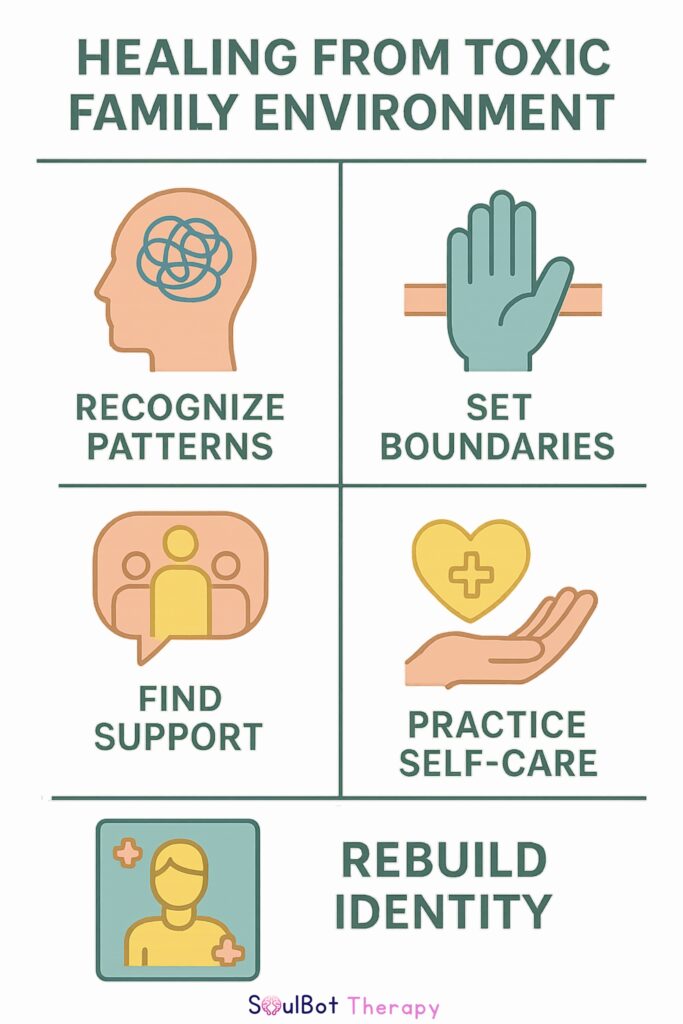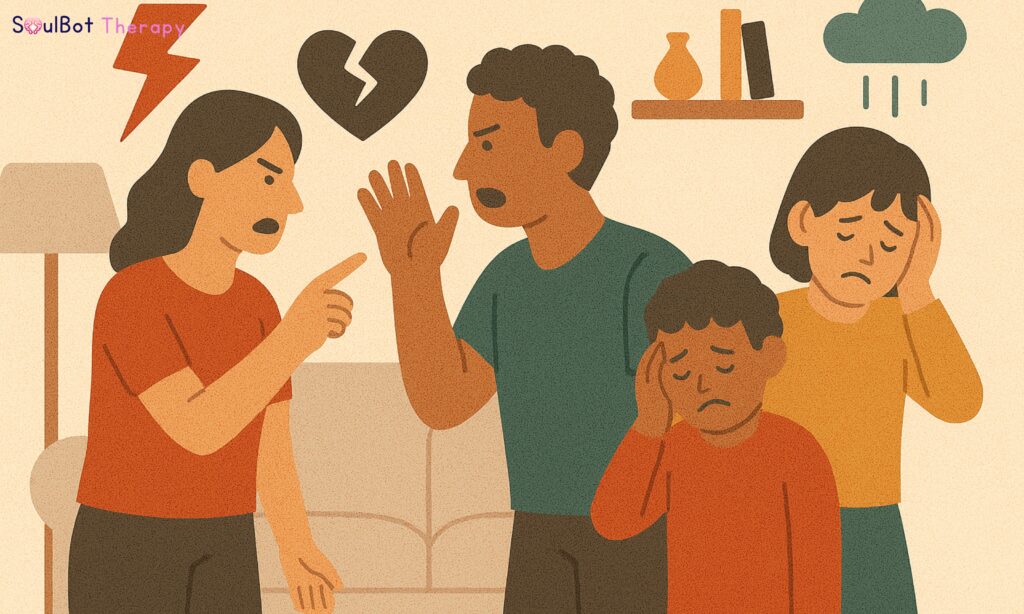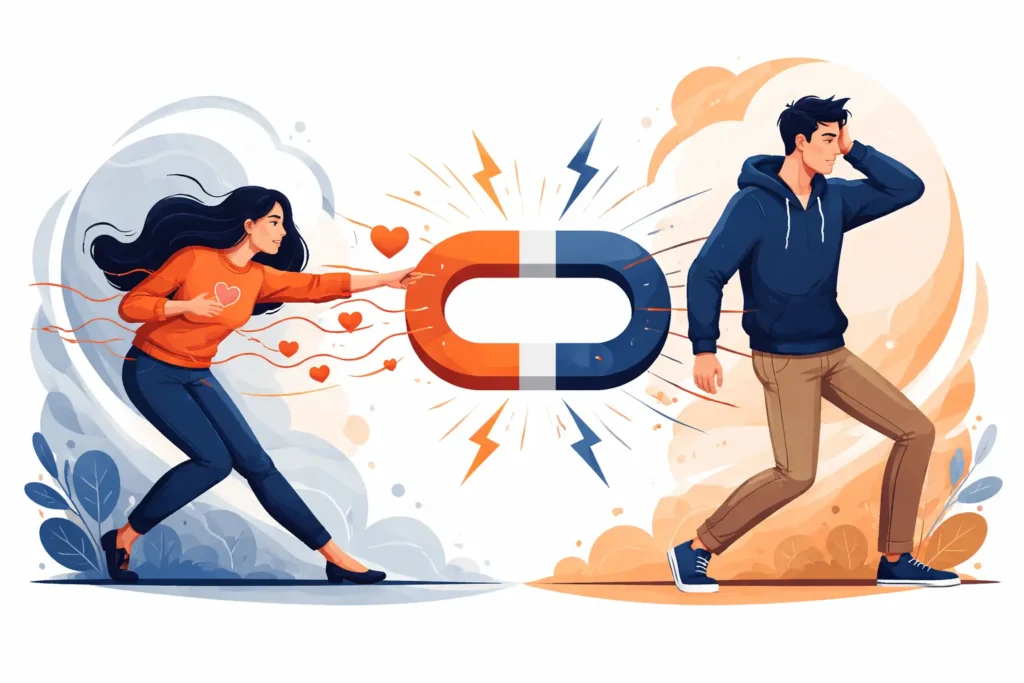Signs of a dysfunctional family aren’t always apparent until you start unpacking your childhood. Maybe you’ve always felt like you were walking on eggshells, or that love in your family came with conditions. These patterns might seem normal because they’re all you’ve ever known, but they can quietly shape your mental health, relationships, and self-worth for years.
In this guide, we’ll break down the most common family dysfunction signs, how they impact you as an adult, and how to start emotional healing from childhood trauma without feeling stuck in the past.
💬 Discover Your Emotional Style: Take our Love Language Test to understand how you give and receive careit’s a decisive first step in healing.What Are the Common Signs of a Dysfunctional Family?
While every family has flaws, some patterns create ongoing harm. Common dysfunctional family traits include:
- Poor communication – Feelings and needs are ignored or invalidated.
- Emotional neglect – Love is conditional or inconsistent.
- Unhealthy conflict – Frequent fights, silent treatments, or manipulative behavior.
- Role reversals – Children taking on adult responsibilities far too early.
- Lack of boundaries – Privacy isn’t respected, and personal space is nonexistent.
💡SoulFact: According to the American Psychological Association, unresolved family conflict in childhood significantly increases the risk of anxiety, depression, and low self-esteem in adulthood.
How Do Dysfunctional Family Traits Affect You as an Adult?
Growing up in a toxic environment can leave emotional imprints that carry into your adult life. You might:
- Struggle with trust and intimacy in relationships.
- Feel guilty for setting boundaries.
- Overwork yourself to feel “worthy.”
- Avoid conflict at all costs, even when it harms you.
These behaviors are survival strategies you learned as a child. Still, they can hold you back until you start breaking the cycle of dysfunction.
Can Childhood Family Dysfunction Cause Long-Term Emotional Struggles?
Yes, early emotional experiences directly shape your nervous system and coping mechanisms. Research from the NIMH shows that adverse childhood experiences (ACEs) increase the likelihood of developing anxiety, depression, and even chronic health issues later in life.
That’s why healing isn’t about blaming but about reclaiming control over your story.

How to Heal from a Toxic Family Environment?
You can’t change the past, but you can change how it defines you. Steps for emotional healing from childhood trauma include:
- Acknowledge what happened – Name the dysfunction instead of minimizing it.
- Set clear emotional boundaries – Decide what behaviors you will and will not tolerate.
- Build a safe support system – Surround yourself with people who respect you.
- Use mental health coping skills – Journaling, therapy, and mindfulness can help reframe negative thought habits.
What Steps Help in Breaking the Cycle of Dysfunction?
Breaking generational patterns means becoming intentional about how you respond, communicate, and set limits.
- Practice open communication with empathy.
- Avoid repeating controlling or invalidating behaviors.
- Work with a therapist to develop healthier relationship habits.
When Should You Seek Professional Support?
If the pain from your past affects your relationships, self-esteem, or ability to function, professional help can be life-changing. A licensed therapist can guide you through relationship detachment techniques and help you release guilt while setting boundaries.
🤖 Chat with SoulBot Anytime: Need a safe, judgment-free space? Our AI mental health assistant offers 24/7 support and personalized coping tools.🕵️Related Reads
- Pre-Social Anxiety: How to Calm Nervousness
- Self-Preservation: How to Protect Your Energy Without Guilt
- Fluid Relationship Models: Polyfidelity, Solo Poly & More
- What is Borderline Personality Disorder (BPD)?
- What is Queerplatonic Relationship?
- AI CBT Therapy: The Future of Personalized Mental Health Care








